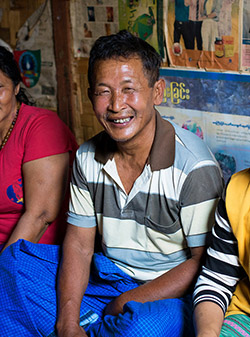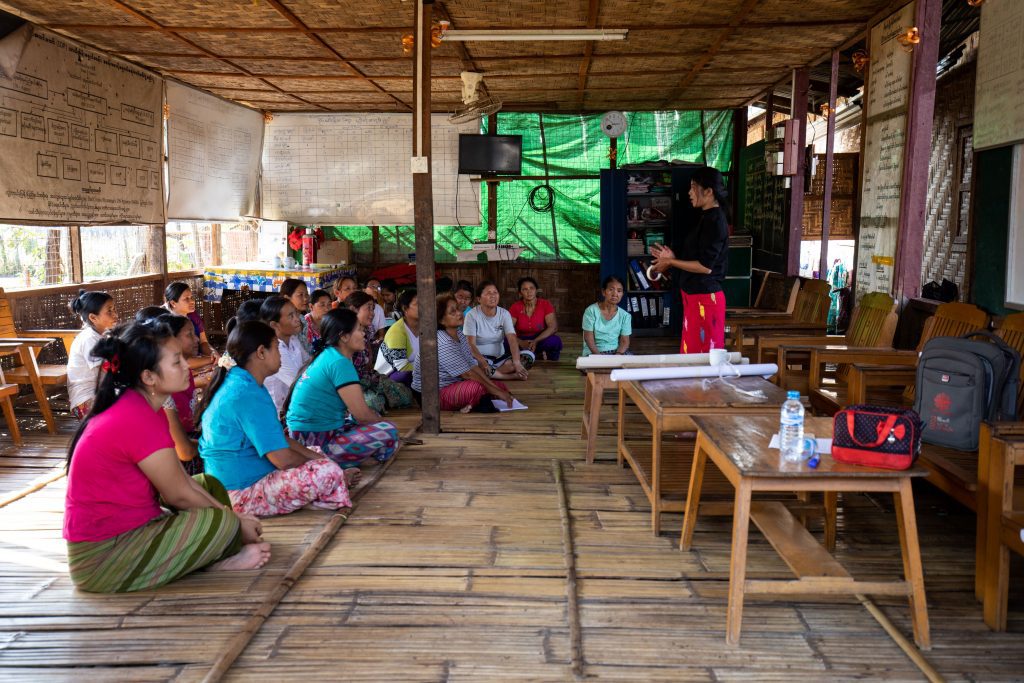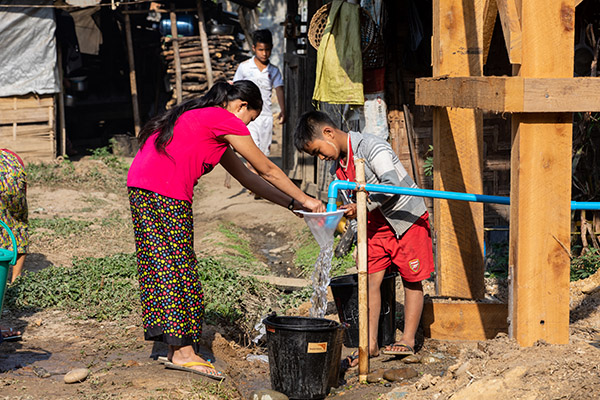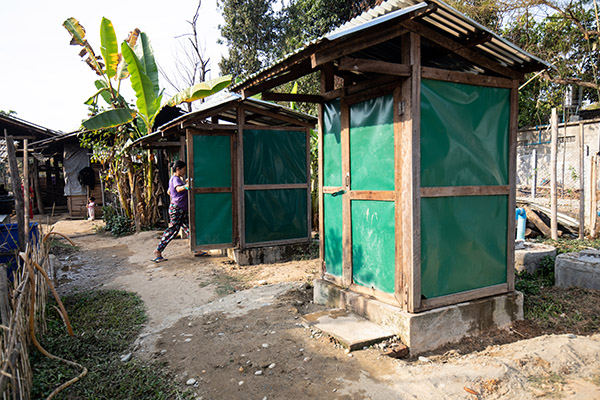Orange Farmer Turned IDP
 “In 2011, when the conflict first started in my home village, we would hide in the church until things quietened down. We would then return to our home. As the days passed and the conflict became more intense, I told my wife and six children to go to the main road where they could be picked up by a motor taxi and taken to the river, where they could take a bamboo raft to safety. By this time the bridge had already been destroyed.
“In 2011, when the conflict first started in my home village, we would hide in the church until things quietened down. We would then return to our home. As the days passed and the conflict became more intense, I told my wife and six children to go to the main road where they could be picked up by a motor taxi and taken to the river, where they could take a bamboo raft to safety. By this time the bridge had already been destroyed.
I and some of the other men in the village remained behind to look after our homes and farms. This was our livelihood. When the conflict grew worse, some of my neighbors sold their land to foreigners and moved to safety. I held out longer. The land had belonged to my family for generations and I did not want to abandon it. My orange groves produced well, and I depended on the income to provide for my family. Unfortunately, due to the conflict, I eventually also had to sell my family farmland to foreigners.
When the shelling started, we had no idea that the fighting would become so intense so quickly. In fear of our lives we were forced to run from our homes and leave everything behind. We escaped to the forest and traveled for three days to reach the town where my family was living in an IDP camp. I found out later that our village was completely destroyed during the attacks. Most of the homes in the village were made of bamboo so they burnt to the ground. We lost everything.
I found the camp and I joined my wife and our six children. Most of our village members also now live in the same camp. We would very much like to return to our home village but we are not able to because the roads are closed to travel. Our fields are now being used by others.
I try to work whenever I can to provide for my family. There is no permanent work in this area so many families struggle to have enough income. I am sometimes able to find a couple of days of work here and there, picking oranges on another man’s farm.
My three younger children attend school and still live with us in the camp. My two eldest daughters are working in a nearby town as domestic workers. They send us money to help our family to survive.
We struggle for money all the time, especially to pay the tuition fees for our three younger children. My wife suffers from high blood pressure and joint pain which she has developed since we moved to this camp. Sometimes we don’t have the money to pay for her medicine, so she suffers. Our lives seemed impossible until we heard about ADRA providing cash grants to IDPs like us. We received the household grant which is 50,000 kyats ($33 USD) and the individual grant at 1 lakh ($65 USD) for 10 months. We use the money for tuition, medicine and buying rice. I also attended the WASH training and we learned the importance of washing our hands and looking after our health.
My family and our whole IDP community have really benefited from the ADRA project. If ADRA did not provide the WASH training and cash grants, our life would continue to be very difficult. Now, we have a chance to be better…thank you!”

ADRA conducts training programs for the IDPs, giving instruction on health, hygiene and sanitation.

ADRA is providing clean water systems to help the IDP’s live healthier lives.

Latrines built by ADRA vastly improve sanitation in the camps.
Let's make a difference together!
Related News and Stories
- News Releases
- News Releases
- News Releases
- News Releases, Stories